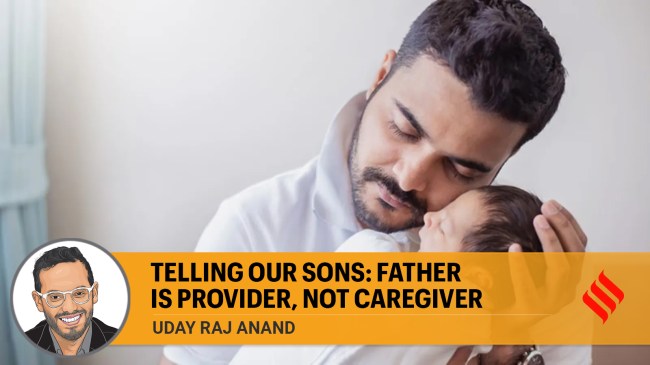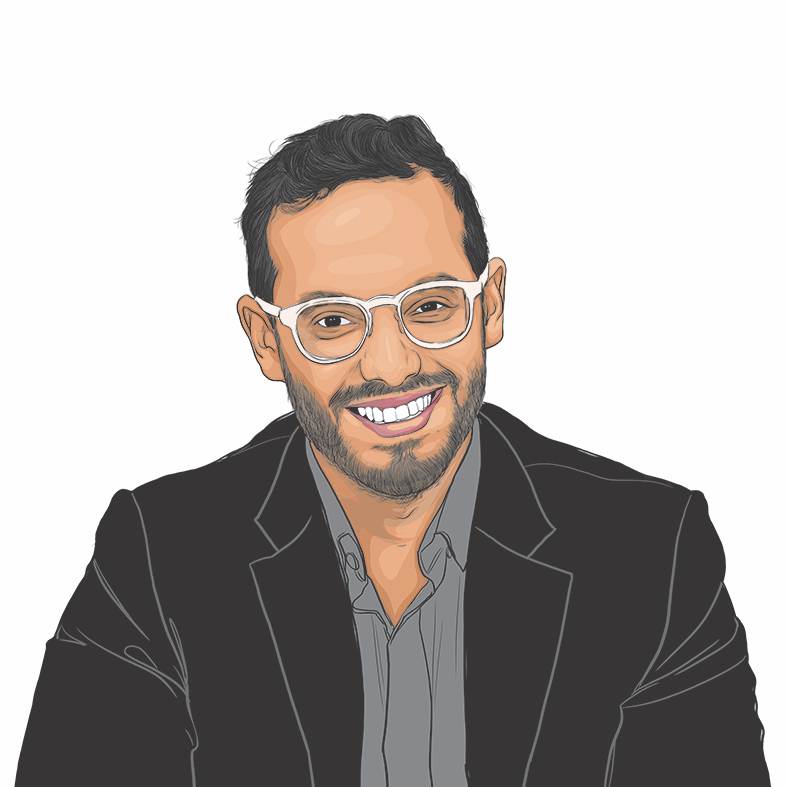Opinion How to raise a boy: Indian fatherhood needs a reset. We must show there is more to men than just being breadwinners
The first step to becoming healthy men, model fathers, and raising a new generation of amazing boys is to make space for vulnerability, care, and emotional presence
 We now know that modelling the behaviours we want to see in our children is one of the most important roles we play as parents. (Getty Images)
We now know that modelling the behaviours we want to see in our children is one of the most important roles we play as parents. (Getty Images) A few months ago, I attended a parenting talk by a highly acclaimed and globally celebrated author and expert. She opened with a joke about the men in the audience: “How much did your wives have to pay you to come here?” The joke was well received, and the audience laughed. The rest of the morning was full of more humour in this vein, underlining that fathers are more a comical impediment than any real help in the parenting process. While meant as light-hearted humour, the jokes betrayed a very real problem in Indian households.
I had heard variations on this theme at work. When I took over HR at my family business — fresh off the boat from a master’s in Development Studies abroad and filled with feminist ideals — I implemented a policy of paternity leave in our office. Within a few months, I received calls from colleagues’ wives saying, “Please cancel this leave. We have one baby to take care of, and we don’t need another at home.”
More recently, a colleague’s wife shared a startup idea with me aimed at single mothers. The idea was brilliant, but I asked her how she thought of it, not being a single mom herself. “I do feel like a single mom sometimes,” she replied. Her husband is a kind, empathetic man, always trying to make people around him happy. The one thing he struggles with is being an expressive, involved father.
The consequence of these stories is that the fathers in that audience — and at my workplace — tend to double down on their “provider” roles. They receive the signal that they are unlikely to have much to contribute to their children’s emotional lives. In turn, they begin to believe their responsibility is to work harder, longer, to take all the travel assignments, to work on weekends — because that will maximise the one thing they are told they are suited for as parents: Providing.
But what impact is this having on our sons? What kind of fathers are we raising when the role models they love and respect believe they are unsuited for cuddles, emotional conversations, and nurturing their children? And what kind of husbands will these young boys become when they have been shown that their mothers are somehow more natural caregivers? What will be their perceptions of the role of women — the place of their future wives in the household caste system?
We now know that modelling the behaviours we want to see in our children is one of the most important roles we play as parents. If we want to raise emotionally rounded men — equipped with empathy, resilience, and emotional regulation — the most important thing is for them to see these qualities in their fathers. For this, dads must be encouraged to take on some primary caregiving responsibilities, increasing the opportunities they have to model the kind of masculinity we want to see in our sons. These include regulating emotions when a child is having a meltdown, showing that kindness is a form of strength, and emotional vulnerability a kind of bravery.
Cartoons seem to be getting it right. Po, the panda in Kung Fu Panda, constantly addresses his internal conflicts about being adopted, about self-doubt and identity. Perhaps it’s no surprise that both his fathers — biological and adoptive — allow themselves to be vulnerable and fallible, and are primary caregiving parents in the absence of mothers (the biological panda dad being a widower and the adoptive goose a single-dad restaurateur). Or Chase, one of the Paw Patrol pups, struggles with traumatic childhood memories and is eventually able to talk through them in a healthy way. Again, his primary caregiver is a male — Ryder — who rescued and nurtured him.
Most importantly, men — especially fathers — must be encouraged to heal their own scars and traumas. Indian men often carry heavy burdens of abuse, having witnessed violence in their homes as children, and are experiencing mental burnout from anxiety-inducing EMIs and more. Deepika Padukone became a beacon for mental health. Indian fathers now desperately need a Padukone of their own to tell them that they need to take care of their inner selves. This is the first step to becoming healthy men, model fathers, and raising a new generation of amazing boys.
There is hope: The fathers I see at school drop-off and pickup and at birthday parties — some of whom sat beside me at that parenting talk — are just the kind of dads we need. My colleague whose wife feels like a single mom desperately wants to do better and show his son what a father can be. Our kids are growing up in and around modern families — some with two fathers, or two mothers. These young boys see their fathers as nurturers. They see the diverse roles men and women can and do play. This is the ironclad protection our boys need from a bro culture that seeks to limit them.
The writer is a business owner based in Delhi



